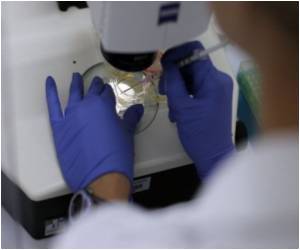Researchers have developed a cheap and reliable diagnostic test for a rare form of cancer.

Hereditary leiomyomatosis and renal cell cancer (HLRCC) is a disorder which causes the development of benign but often painful tumours in the skin and, in females, in the uterus. Between one in six and one in 10 people affected by the disorder will go on to develop an aggressive form of kidney cancer called papillary renal cell cancer. The condition often strikes people in their twenties.
Now, an international team of scientists led by researchers at the Henry Wellcome Building for Molecular Physiology, University of Oxford, have identified a particular protein modification, which is induced by FH deficiency (and hence an over-abundance of fumarate).
This alteration is unique to this type of tumour and can hence be used as a biomarker - a biological 'fingerprint' to identify tumours caused by this mechanism.
The researchers have developed a test for this protein modification, which can be carried out in less than two hours and will identify tumours with FH mutations. This approach is much more cost effective than genetic testing of all possible cases using DNA sequencing.
They show that screening cases of papillary renal cell cancer using this new test allows them to identify undiagnosed cases of HLRCC for genetic testing. They believe this test should be applied to all cases of papillary renal cell cancer to identify those with FH mutations, allowing advice to be provided to their families on their own relative risks of developing the disorder and associated kidney cancer.
Advertisement
"For the first time, we are now able to screen for tumours caused by this rare, but often very serious, condition using a test which is simple, cheap and reliable," added Pollard.
Advertisement
Source-ANI













